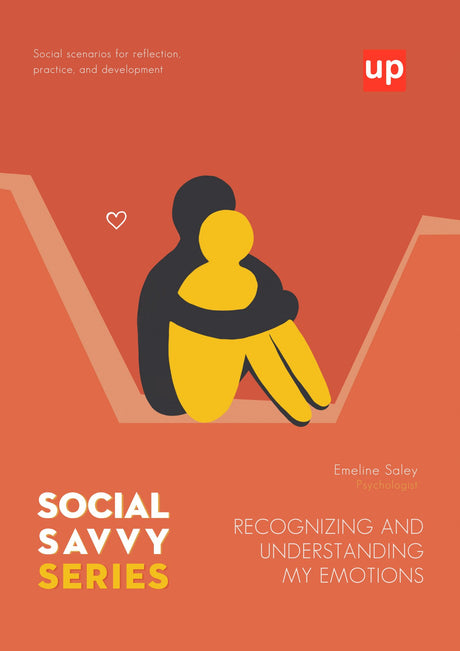10 Effective Strategies to Teach Social Skills to Children
Need ways to teach social skills to your child? In this guide, find 10 practical strategies to enhance their communication, empathy, and collaboration. Learn evidence-based methods to foster positive interactions and emotional intelligence.
Key Takeaways
- Positive social interactions and peer mentorship significantly enhance children’s communication abilities and relationship-building skills.
- Active listening and empathy are critical components of effective social skills development, promoted through engaging activities like role-playing and audio stories.
- Clear social expectations and structured social situations are essential for helping children understand acceptable behaviors and apply social skills in various contexts.
Encouraging Positive Social Interactions

Positive social interactions are the bedrock of effective communication and relationship-building. To foster these interactions, one must consider various evidence based practices in social-emotional learning (SEL) techniques. Regular practice and explicit instruction of positive social skills can significantly improve a child’s communication abilities. This can be as simple as encouraging children to share and collaborate, which helps maintain friendships and demonstrates appreciation.
Peer mentorship is another powerful tool. Children learn new social skills more effectively when they observe and imitate positive behaviors demonstrated by their peers. Observing and mimicking peer actions can naturally and engagingly help children pick up important social cues.
Using literature, like read-aloud sessions, can also be beneficial. Talking about the social interactions of characters in stories offers relatable and instructive contextual understanding. These methods collectively encourage children to engage positively with others, laying the groundwork for a lifetime of successful social interactions.
Developing Active Listening Skills
Active listening is a critical social skill that enhances communication and emotional intelligence. Listening to audio stories is an effective way to develop this skill. Audio stories require children to summarize content accurately, improving their focus and retention. Games like ‘Simon says’ and ‘telephone’ are excellent for practicing listening skills in a fun way. These activities require following verbal commands accurately and passing messages, excellent exercises for honing listening abilities.
Another engaging method is popcorn storytelling. Children take turns continuing a story, promoting creativity and attentiveness. Hands-on tasks like giving step-by-step drawing instructions can engage children effectively, making listening practice interactive and enjoyable.
Role-playing further enhances communication skills. Articulating thoughts and actively listening to others during role-play helps children significantly improve real-life communication skills. These strategies collectively ensure that children develop the focused listening skills necessary for successful social interactions.
Teaching Empathy and Perspective Taking

Empathy and perspective-taking are foundational to developing strong social skills, and one skill that can enhance this development is the ability to understand and share another’s feelings. Empathy can be nurtured through scenarios requiring reflection on others’ emotions. Parents can model empathy by demonstrating how to consider others’ emotions in everyday situations.
A ‘We Care Center’ with items like tissues and Band-Aids can teach kids to show empathy practically. Role-playing different scenarios allows children to experience various perspectives, enhancing their ability to empathize. Reading stories and discussing characters’ feelings is another effective method for promoting emotional awareness and empathy.
Open discussions about emotions help children understand and express their feelings better. Acknowledging a friend’s feelings and offering to take turns can be powerful demonstrations of empathy. These practices help children develop a deeper understanding of others’ emotions, fostering more meaningful social interactions.
Practicing Sharing and Collaboration

Sharing and collaboration are essential for children’s social development. Opportunities for socialization are critical, as insufficient interaction can lead to feelings of isolation and hinder social skill development. Group activities require teamwork and help children develop important skills like cooperation and conflict resolution. For instance, team sports teach children teamwork and emotional recognition.
Community service volunteering is another excellent strategy. It connects children with diverse groups, fostering empathy and community. Community gardening teaches responsibility and nurtures social competence through collaborative care.
Respecting children’s individual boundaries when encouraging sharing is crucial. Allowing kids to share voluntarily respects their personal space and fosters a genuine willingness to collaborate. These methods ensure that children learn to share and understand the value of working together towards common goals.
Role-Playing Scenarios
Role-playing scenarios are powerful for teaching social skills. They let children practice in a safe environment, enhancing their confidence and comfort in real-life interactions. Effective role-play scenarios should include clear objectives, realistic situations, and defined roles to ensure meaningful practice.
After watching a video model, role-playing and practicing the demonstrated social interaction is beneficial. This hands-on approach helps children internalize social expectations and behaviors by actively engaging in various scenarios, enhancing their ability to navigate social situations.
Using Video Modeling
Video modeling is highly effective for teaching social skills. Using video clips to demonstrate desired behaviors allows children to observe and learn in a structured and engaging way. Resources like Model Me Kids and Everyday Speech provide valuable content for this purpose.
Homemade video models featuring familiar individuals can enhance relatability and the learning experience. After watching these videos, students create feedback on the characters’ behaviors, focusing on improvements. This interactive approach ensures that children observe and critically engage with the social skills being taught.
Books from Upbility Publications that Teach Social Skills
Upbility Publications offers a range of books designed to enhance social skills in children. These resources provide practical strategies and activities to develop critical social competencies, such as empathy, communication, and self-awareness. The books are tailored to different age groups and learning needs, ensuring that every child can benefit from targeted social skill instruction. By incorporating these resources into your teaching or parenting approach, you can effectively support children's social development, helping them navigate social interactions with confidence and understanding.
Establishing Clear Social Expectations

Clear social expectations help children understand acceptable behavior in various settings. Consistent reminders about social norms reinforce proper behavior. Communicating these expectations positively and straightforwardly ensures children grasp the concepts effectively.
Visual aids or charts can effectively illustrate social expectations for children. Involving children in discussions about expectations encourages them to take ownership of their behavior. When children are part of the conversation, they are more likely to adhere to established norms.
Creating Structured Social Situations
Structured social situations teach social skills to students before practicing them. These situations help develop routines and meet behavioral expectations. Games requiring turn-taking, like Roll the Ball, help children develop early learning social skills.
Virtual playtime encourages children to adapt their social skills to online interactions. Breaking kids into small groups can improve their conversational skills during lunch. Topic boxes can prompt discussion on specific subjects, guiding appropriate conversations.
These structured activities ensure children practice social skills in a controlled and supportive environment.
Encouraging Self-Awareness and Self-Management
Self-awareness involves recognizing one’s emotions and understanding how they influence actions and choices. Helping children identify their emotions can enhance their resilience and enable them to cope with social awareness challenges more effectively.
Self-management skills help children navigate their emotions and make decisions that support their goals. Feedback after role-playing sessions helps participants reflect on their interactions and identify areas for development. These strategies promote emotional intelligence and self-regulation, crucial for successful social interactions.
Reinforcing Positive Behaviors
Consistently reinforcing positive behaviors is vital for children’s confidence, helping them become more independent in social settings. Specific and immediate praise can boost a child’s confidence and encourage further positive behaviors.
Visual reward systems, like sticker charts, help children track their progress in developing desirable social skills. Balancing tangible and intangible rewards promotes motivation without fostering dependency on material goods. These methods ensure children continue to engage in positive behaviors, reinforcing their social skills development.
Summary
Teaching social skills to children is a multifaceted approach that requires consistency, patience, and a variety of strategies. From encouraging positive social interactions to reinforcing good behaviors, these methods are designed to create a supportive environment where children can thrive. By incorporating techniques like role-playing, video modeling, and structured social situations, we can help children navigate the complexities of social interactions with confidence and empathy.
As we conclude, it’s important to remember that the journey of teaching social skills is ongoing. Continuous reinforcement and practice are key to ensuring that children develop the skills they need to succeed in life. Let’s commit to fostering these skills in our children, setting them on a path to becoming well-rounded, empathetic, and socially adept individuals.
Frequently Asked Questions
Why are social skills important for children?
Social skills are essential for children's development as they facilitate effective communication and relationship-building, helping them navigate various life challenges. Without these skills, children may face difficulties academically and socially.
How can parents model empathy for their children?
Parents can model empathy by actively acknowledging and discussing the emotions of others in daily interactions, fostering an environment where their children learn to understand and share those feelings effectively. This approach not only enhances emotional intelligence but also strengthens family bonds.
What are some effective games for developing active listening skills?
Games such as 'Simon Says,' 'Telephone,' and popcorn storytelling are highly effective for developing active listening skills. These activities not only make learning enjoyable but also improve focus and retention.
How can video modeling be used to teach social skills?
Video modeling effectively teaches social skills by using video clips to showcase desired behaviors. Utilizing resources such as Model Me Kids and Everyday Speech can enhance the learning experience.
What are the benefits of establishing clear social expectations?
Establishing clear social expectations benefits individuals by fostering understanding of acceptable behavior and promoting social awareness, which ultimately reinforces positive interactions in various settings.
References
-
Gresham, F. M., & Elliott, S. N. (2008). Social skills improvement system: Rating scales. Pearson Assessments.
-
McKown, C., Gumbiner, L. M., Russo, N. M., & Lipton, M. (2009). Social-emotional learning skill, self-regulation, and social competence in typically developing and clinic-referred children. Journal of Clinical Child & Adolescent Psychology, 38(6), 858-871.
-
Walker, H. M., & Severson, H. H. (1992). Systematic screening for behavior disorders (SSBD): User's guide and administration manual. Sopris West.
-
Elias, M. J., & Weissberg, R. P. (2000). Primary prevention: Educational approaches to enhance social and emotional learning. Journal of School Health, 70(5), 186-190.
-
Zins, J. E., & Elias, M. J. (2007). Social and emotional learning: Promoting the development of all students. Journal of Educational and Psychological Consultation, 17(2-3), 233-255.









